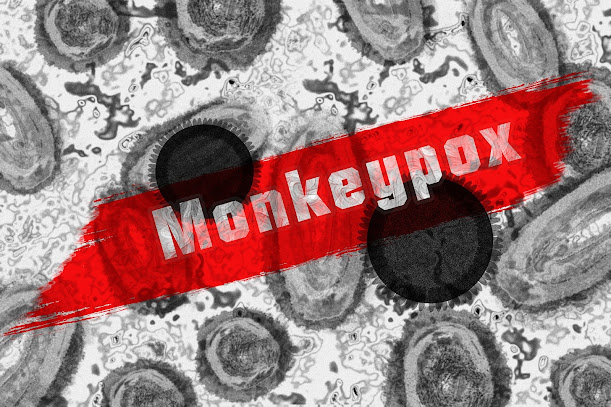How global warming causes monkeypox outbreak
How global warming causes monkeypox outbreak
Some scientists believe that global warming helps disperse diseases like monkeypox to places that aren't normally found. According to World Health Organization, initial cases of monkeypox in 2022 have no proven connections to nations where the virus is endemic. On May 17 of this year (2022), Portugal recorded the first human monkeypox incidence.
According to Heidi Brown, an associate professor at The University of Arizona, an increase in disease occurs when there is congestion or when more people move to an area, exposing them to new diseases; however, there are also shifting disease patterns connected to climate change.
Brown investigates the connections between climate change, vector-borne diseases, zoonotic diseases, and spatial epidemiology in his studies. A faster rate of virus replication is one-way warming affects public health by raising the likelihood that people will come into touch with viruses or the insects that spread them.
Brown addresses concerns about the proliferation of infectious diseases and the scientific community's response to them in her own words.
Will global warming make monkeypox and other infectious diseases more common?
The current body of research shows that there will be shifts in the geographical distribution of diseases. If by "zoonosis" you mean the spread of disease from animal to human, we anticipate increasing human contact with wildlife.
In addition, human illness is on the rise due to population density. Disease patterns may shift as a result of climate refugees who are displaced and have nowhere to go. We may expect to see more infectious diseases and a wider variety of diseases worldwide. But since every disease has its life cycle and means of spreading, I anticipate a wide range of outcomes about the types of diseases we might anticipate and the types of diseases that might be unaffected by climate change.
As a result, the incidence and prevalence of
infectious diseases and their geographic distribution will begin to undergo
dramatic shifts.
DO WE HAVE THE TOOLS IN MODERN SCIENCE TO DEAL WITH EVOLVING DISEASES?
While I don't have vaccine creation experience, I think the results with COVID were remarkable. Most people don't realize how incredible it was that we went from "What the heck is this?" to a vaccination that was so efficient, rapid, and risk-free. Perhaps before the emergence of the C. o. v. i. d., my response to such a is, "I don't know, it takes a long time to have vaccines produced and make sure they are safe," with the disclaimers above.
But I am motivated by the groups and teams collaborating to figure out how to produce a vaccine without endangering anyone's health.
Despite how bad and discouraging COVID has been, I believe there
are some positive takeaways we can learn from. It will be challenging in the
future since illnesses are evolving, and there will be gaps in our defenses if
we don't adapt to keep them at bay.





Comments
Post a Comment